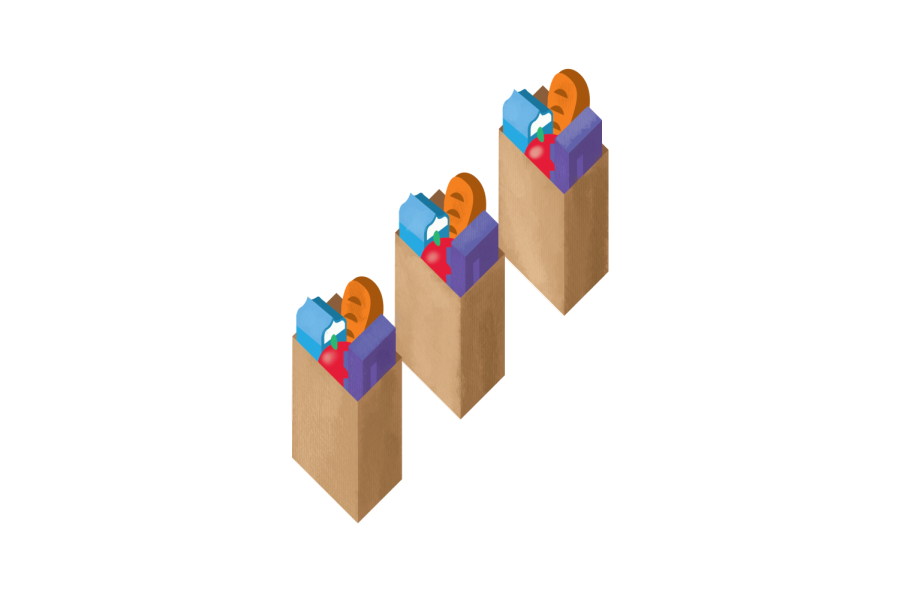OMA Leads Food Security Initiatives
Across the U.S., hundreds of thousands of college students face food insecurity every year. The reality is no different at Seattle University. On campus, the Office of Multicultural Affairs (OMA), is there to help.
Michelle Kim, the director of OMA, has played an important role in the recent development of the office’s Food Security program. In its 53-year history, it wasn’t until the fall 2018 that OMA decided to take the food security initiative under direct control. Kim wants OMA to be able to build relationships with students while also having tangible resources for them.
“The food security initiative developed as a three-part program,” Kim said. “The first part is the food pantry. The second part is the emergency dining card program and the third part is educational programs.”
Being one of the most actively used parts of the program, the food pantry is located directly in OMA’s office, Pigott Pavilion 180. According to Kim, the pantry has been serving about 60 visitors during a week, an amount that has slightly dwindled since the beginning of the pandemic.
The pantry is available to any member of the Seattle U community with a current university ID card. Visits are limited to once a week, and there are no questions asked. The pantry can be described as having nutritious and fulfilling food, along with snacks.
One recent addition to the pantry includes prepared meals from Redhawk Dining. Andrew Gaynor, the resident district manager of Redhawk Dining, is one of the heads of the Food Recovery Network.
“Every Wednesday, meals are packaged in our kitchen, frozen in microwave safe containers and made available in the food pantry for community members,” Gaynor said. “We will soon be launching a new initiative where students who identify as being food insecure will be notified when leftover catering foods are available and have an opportunity to come get food before it is removed from the event.”
The second aspect of OMA’s food security initiative is the emergency dining card program. Gaynor spoke to students giving their leftover dining dollars to their peers at the end of each quarter. Up to $250 of unused dining dollars can be donated to students in need.
“These funds are distributed to OMA who have emergency food cards available for students who are in need, to use at dining venues on campus,” Gaynor said.
The emergency dining cards are available to any student who does not have a meal plan and currently faces a financial emergency in which they could utilize some food support. The card’s value goes up to $500 per calendar year. These cards can be applied for via OMA’s ConnectSU page.
The third aspect of OMA’s food security initiative focuses on educating Seattle U community members. One of the most important parts of this education is headed by OMA’s Graduate Assistant Gabby Rios, who is the leader behind the office’s communication about the Supplemental Nutrition Assistance Program (SNAP).
SNAP, which changed policy during the COVID-19 pandemic, now applies much more generously to college students. Before, the program did not accept the eligibility of those enrolled more than half time. Detailed information is available at OMA’s “Demystifying SNAP for College Students” events, the next of which is scheduled for May 4.
Put simply, if you are eligible for work-study or your Estimated Family Contribution (EFC) is zero, you may be eligible to receive SNAP benefits. Rios hopes to make more students aware of this program, but is having to ask herself how to get that message out to students. As the leader of OMA’s meetings on SNAP, she is eager to advise any students on how to apply or verify their eligibility.
“A large number of students who are eligible for food stamps never get their benefits because they don’t apply. That’s normally because of one of two things. It’s due to the stigma around welfare and also a lack of knowledge about it,” Rios said.
Rios hopes to help alleviate both the stigma and lack of knowledge through OMA’s educational programs. There is a reality of food insecurity throughout college campuses that often goes ignored. OMA, through collaboration with organizations like Redhawk Dining, are attempting to demystify food insecurity, shine a light on the problem and offer a helping hand for those in need.












Maria Burquest
May 3, 2022 at 2:48 pm
Very informative article
Allan Mitchell
May 1, 2022 at 4:35 pm
Concise. Cordial. Class–Cheers.